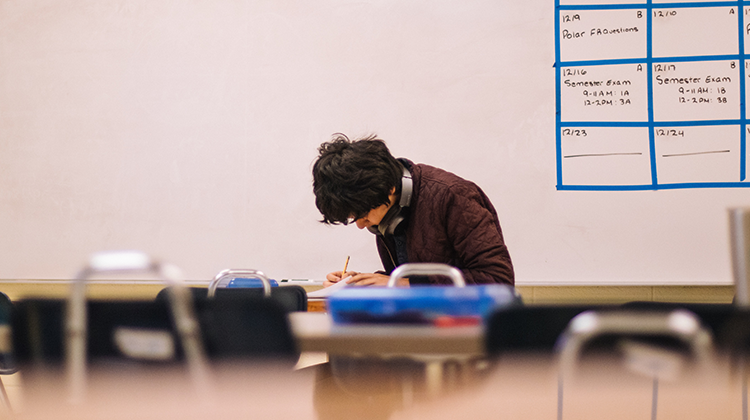What is the DELE exam and why take it?
The DELE (Diploma of Spanish as a Foreign Language) is an official exam that evaluates and accredits proficiency levels in the Spanish language of students. It is administered by the Cervantes Institute, the main institution for the teaching and study of the Spanish language.
This exam is recognized internationally by public and private institutions. It is required by many universities to study and can add a lot of value to a resume. Furthermore, it is also one of the requirements to obtain Spanish citizenship.
Taking the exam could also help the students to keep their motivation to learn the language and to go “the extra mile”.
Something really important is that the DELE certificate is valid indefinitely, that is, it does not expire.
There is a different exam for each of the language proficiency levels (A1, A2, B1, B2, C1, C2). This means that whether the candidate has a basic, intermediate, or advanced level of Spanish, it is possible to certify that competence. However, not all the levels are considered sufficient for all purposes. For example, universities usually ask for at least the DELE B2.
Candidates can choose any of the levels of the DELE exams without having taken any lower DELE exam previously. For example, to take the C1 exam, you do not need to have passed all the previous levels. You can take the C1 exam directly.
On the other hand, if candidates take an exam, (for example DELE B2) and fail, they do not get the DELE B1 certificate. In the exam there are no grades, the result is only "pass" or "fail".
As a consequence, it is really important to decide what is the right level for you, mainly because the exams have a fee, which varies in each country.
Before you start to prepare for the exam, you need to find out what your language level is, by taking a free level test on the Instituto Cervantes website. In addition, on the web, you will find other level tests available for free.
How to take DELE
To take the exam the candidate has to register at the Instituto Cervantes or an authorized examination center, such as some Spanish academies. You can take the exam in many countries, not only in Spain. You can look up on the Cervantes Institute website the center closest to your city.
It is not possible to take the exam at any time, but rather on one of the dates provided by the Instituto Cervantes. It's important to note that not all centers offer all levels on testing days. That's why it is necessary to register in advance and, of course, to start by preparing for the exam.
How to prepare for the exam
It is not enough to have the language level to pass the exam. You have to know very well the structure of the exam and what is evaluated in each of the parts. All the exams have four parts to test the four skills: written comprehension, oral comprehension, written expression, and oral expression. Within an oral expression, the individual oral expression of the candidate to perform a monologue and their ability to maintain a dialogue are examined.
The website of the Instituto Cervantes offers mock tests for each DELE level. Practice solving these tests to get used to the structure and format of the exam.
Added to that, it is essential to be familiar with the exam times since each part has an assigned time. Practice the exam as if it was a real situation, doing each test at the established time. For example, in the DELE B2, for the written expression test, the candidate has 80 minutes to do two tasks and must be organized to manage the time.
It could be useful to buy a book focused on the preparation for the exam, level by level. Those books present the grammar and vocabulary specific to each language level. They focus on the topics required at each level. For example, in the DELE B2, it is common to address issues related to medicine, education, and the world of work. Lastly, these books have mock tests with the correct answers in the back.
There are also many useful resources for free on the web: articles, videos, and interactive exercises.
Although you can start preparing for the DELE exam on your own, at some point you will need the help of a Spanish teacher who is intimately familiar with the exam. The best idea is to hire a teacher who is also a DELE examiner and can provide you with a guide to pass the exam. The teacher will detect your weak skills and advise you on how to work on them to improve.
Besides, the exam requires productive skills (writing and speaking) and without professional feedback, it is harder to improve your performance and, as a consequence, your score in the exam. Therefore, the teacher can help you to increase your chances of success on the exam.







